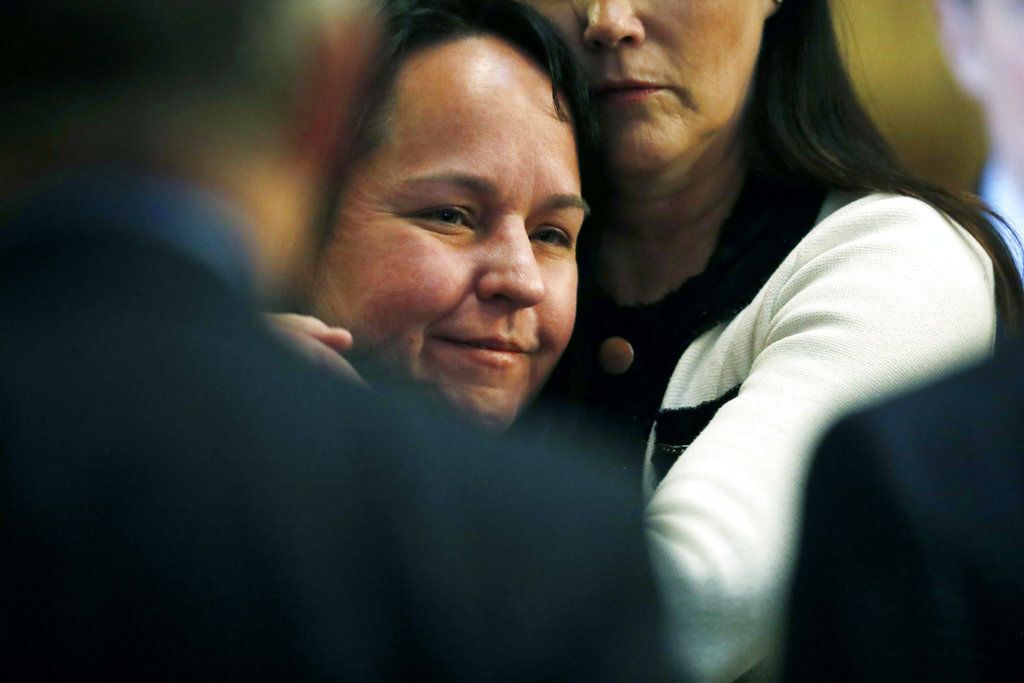Bennet votes no on DeVos nomination
A Senate committee voted twice Tuesday, Jan. 31, to recommend Republican donor and school choice advocate Betsy DeVos for education secretary, as two GOP senators expressed reservations.
After a heated debate that included allegations of plagiarism against DeVos, senators on the Health, Education, Pensions and Labor Committee voted 12-11 along partisan lines to support DeVos’ nomination, sending it to the full Senate for action.
The plagiarism allegations surrounded her written answers to questions from committee members, with some claiming the answers appeared to have been copied and pasted from other sources or DeVos’ past speeches.
U.S. Sen. Michael Bennet, D-Colorado, is a committee member and voted to oppose the nomination.
“There is nothing in the conversations I’ve had with this nominee, or in her experience in Michigan or Detroit, that gives me confidence that she can lead us in the direction we need, which is to ensure that every kid in America has access to high-quality education, whether or not they are born into wealth,” Bennet said. “That is why I will vote against this nomination.”
In his remarks during the committee’s consideration of DeVos, Bennet, a former superintendent of Denver Public Schools, noted inequalities in the American public education system.
“While we have these partisan squabbles in the Senate, there are millions of American kids who are attending schools that are foreclosing on their future from the start,” Bennet said. “There are millions of people teaching today in America who have a job that is much harder than anyone on this panel, who are not being adequately supported in their work.”
“I was a school superintendent of an urban school district,” he added. “The last thing I wanted was the federal government telling me what to do. But I believe we have a profound national interest to ensure that more than 9 out of 100 kids born into poverty in this country are able to get a college degree. We also have a profound national interest to attract the next 1.5 million teachers to teach, especially in our high poverty schools in our cities and rural communities.”
Two prominent Republicans on the committee, Senators Susan Collins of Maine and Lisa Murkowski of Alaska, expressed skepticism over DeVos and both said they are not yet sure whether they will vote for her on the Senate floor.
Murkowski said DeVos had yet to prove she deeply cares about America’s struggling schools and its children. Murkowski said the nominee had not yet earned her full support.
In a separate education-related release from a Colorado Congressional delegation member, U.S. Rep. Jared Polis was selected to serve as the lead Democrat on the House Early Childhood, Elementary, and Secondary Education Subcommittee and as a member of the Higher Education and Workforce Development Subcommittee.
“I truly believe that education is the single best investment we can make in the future of our great country,” Polis said in a news release from his office. “Every student in America – regardless of ZIP code or their station in life – has the right to a top-quality, 21st-century education from early childhood on up. This belief is a large part of why I serve in Congress, and I am thrilled to serve on these committees. I believe we can work together to make progress in education this Congress, while also holding the Trump administration accountable. We can’t afford to move backward, only forward.”
The Early Childhood, Elementary, and Secondary Education Subcommittee will help oversee the implementation of the Every Student Succeeds Act, which replaced the outdated No Child Left Behind Act. Polis served on the conference committee that drafted the Every Student Succeed Act, which has been credited by some with moving beyond rigid testing policies and empowering schools and parents. In addition, Polis plans to introduce legislation to protect student data privacy and combat discrimination in schools.
Along with these subcommittees, Polis will serve on the full House education committee, called the Committee on Education and the Workforce, as well as the Rules and Ethics Committees.











